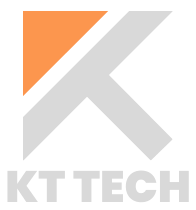1. Care Bears to Launch Interactive AI Companions for Kids by 2026
Basic Fun and PlayDate Digital are developing AI-powered Care Bears characters that children can interact with via phone and tablet apps starting in 2026. The smart toys will use machine learning to adapt conversations and activities based on users’ preferences over time, creating personalized engagement. The project aims to blend nostalgic storytelling with modern technology, though specifics about data privacy measures remain undisclosed.
Read full story
2. Global AI Adoption Booms in Rich Nations, Lags in Developing Countries: Anthropic Report
A recent Anthropic study highlights that artificial intelligence adoption is rapidly expanding in wealthy economies while developing nations struggle to keep pace. The report reveals AI is primarily being used to automate technical tasks such as coding, data analysis, and content moderation. Researchers warn this growing “AI divide” could worsen existing digital inequalities between countries. The findings emphasize the need for targeted investments and skill development programs to ensure equitable access to AI benefits globally. Experts suggest international cooperation and policy interventions might help bridge this emerging technological gap.
Read full story
3. OpenAI Implements Stricter Age Verification for ChatGPT to Protect Minors
OpenAI has rolled out new safeguards restricting under-18 users from accessing sensitive or high-risk content through ChatGPT. The measures include enhanced age verification, blocked discussions on harmful topics, and AI response filters to ensure minors interact safely with the tool. Parental consent requirements and compliance with international child protection norms form part of the upgraded security framework, addressing concerns about AI’s ethical use among younger audiences.
Read full story
4. MetaGPT: AI Framework Transforms Requirements into Software Specs and APIs Automatically
MetaGPT introduces an innovative framework that automatically converts project requirements into detailed software specifications, API documentation, and development plans through multi-agent collaboration. Designed for developers, this solution streamlines early-stage workflows by enabling AI agents to simulate diverse professional roles like product managers and engineers. The system generates structured outputs including user stories, flowcharts, and interface designs while supporting multiple programming languages. This approach aims to reduce manual effort in software planning while maintaining technical accuracy and organizational clarity.
Read full story
5. Boost Coding Efficiency with Continuous AI’s Custom Agents for IDEs and Terminals
Continuous AI unveils an innovative tool to streamline software development by enabling programmers to build custom AI agents within integrated development environments (IDEs) and terminals. This solution accelerates coding processes through automation, allowing developers to focus on core tasks. The platform supports seamless integration with existing workflows, offering features like code suggestions, error detection, and real-time collaboration. Available as an open-source project on GitHub, it caters to individual coders and teams seeking improved productivity.
Read full story
Open Interpreter: Run Python, JavaScript, and Shell Commands Using Natural Language
Open Interpreter is a powerful tool designed for developers, enabling them to execute Python, JavaScript, and Shell commands through simple natural language inputs. By leveraging large language models (LLMs), this open-source solution allows users to automate coding tasks locally without memorising complex syntax. It streamlines workflows and boosts productivity in software development by converting plain English instructions into functional code.
Read full story
7. Top AI Scientist Song Chun Zhu Moves from US to China to Pioneer Reasoning-Based AI Over Big Data Models
Renowned AI expert Song Chun Zhu has relocated from the United States to China to lead cutting-edge research in reasoning-based artificial intelligence. Highlighting limitations in current big-data-driven models, Zhu aims to develop AI systems capable of human-like logical reasoning and decision-making. This strategic move positions China’s tech sector to challenge global AI dominance with next-gen applications in robotics, autonomous vehicles, and cognitive computing. Industry analysts speculate this shift could redefine international AI competition dynamics.
Read full story
8. MIT Researchers Develop AI Tool to Create 3D Models of Unborn Babies for Better Health Monitoring
MIT scientists have created a machine learning tool that converts MRI scans into detailed 3D models of developing fetuses. This breakthrough technology allows healthcare providers to analyze prenatal health with unprecedented clarity, potentially identifying developmental abnormalities at earlier stages. The system generates lifelike visualizations of the baby’s position, organs, and skeletal structure within the womb. Such advancements could revolutionize prenatal care by enabling non-invasive monitoring and facilitating timely medical interventions when required.
Read full story
9. AI Breakthrough: How Scientists Are Training AI to Discover New Disease Treatments
Researchers are leveraging artificial intelligence (AI) to analyze vast volumes of scientific studies and medical data, aiming to identify potential treatments for complex diseases. Advanced AI systems now scan research papers, clinical trials, and genetic databases to spot patterns and suggest verifiable therapeutic approaches. This technology helps scientists prioritize promising drug candidates and reduces time-consuming manual analysis, potentially accelerating breakthroughs in curing illnesses like cancer or rare genetic disorders. The AI models cross-check findings across multiple sources to ensure credibility before sharing insights with medical teams.
Read full story
10. AI Could Enable 3-Day Workweeks by Boosting Productivity: Zoom CEO Eric Yuan
Zoom CEO Eric Yuan predicts AI advancements could lead to widespread three-day workweeks by improving workplace efficiency. Automation tools may handle routine tasks, allowing employees to focus on strategic roles. However, this shift requires workers to upskill for AI-augmented jobs. Experts highlight potential benefits like better work-life balance and innovation opportunities while cautioning about challenges in workforce adaptation and job displacement risks.
Read full story
11. ChatGPT Transforms Daily Life: Global Study Reveals Wider Impact Beyond Work
A recent global study highlights ChatGPT’s growing influence in enhancing personal and professional tasks worldwide. Users report leveraging the AI tool for everyday activities, self-reflection, and critical decision-making, extending its utility far beyond workplace environments. The findings suggest a shift in how individuals approach problem-solving and creativity, with ChatGPT emerging as a versatile aid in diverse aspects of modern life.
Read full story



